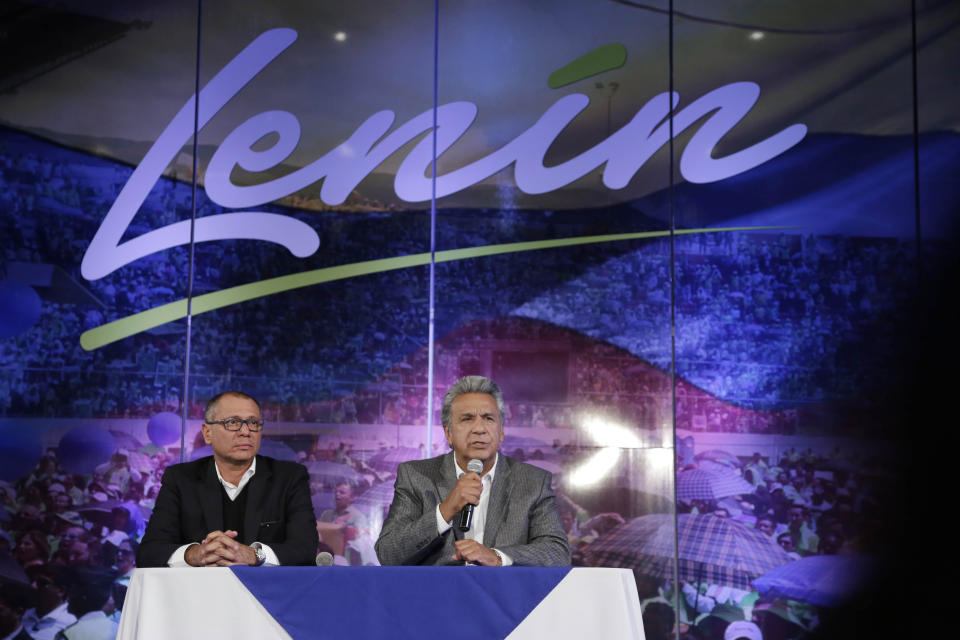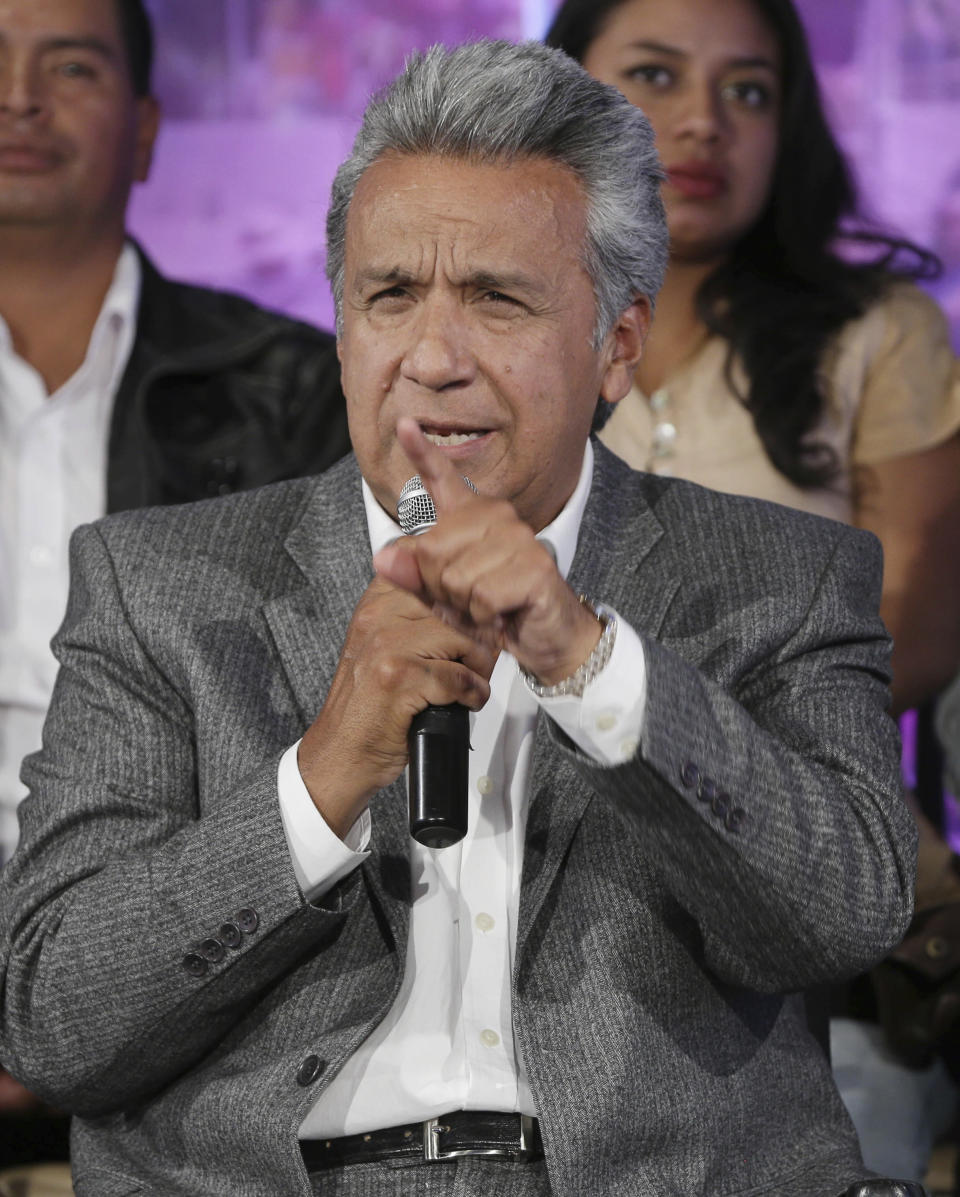Ruling party candidate declared victor in Ecuador election
QUITO, Ecuador (AP) — Ruling party candidate Lenin Moreno has won Ecuador's tight presidential election, the head of the country's National Electoral Council said Tuesday, bucking a trend of right-wing electoral victories in South America after 15 years of leftist domination.
Juan Pablo Pozo, president of the electoral council, announced the election win by the leftist Moreno in a nationwide broadcast. He said the results were "official, irreversible" with 99.65 percent of the votes counted.
He said Moreno won slightly over 51 percent of the vote, compared with 49 percent for opposition challenger Guillermo Lasso, who is contesting the results over allegations of fraud.
Pozo said both political organizations can present objections through institutional and legal channels.
Moreno declared that "the people have decided democratically" and said he accepted his victory "with humility, at the same time hoping that the other candidate will accept it with dignity."
Lasso, a conservative banker, vowed to continue fighting against the installation of an "illegitimate" government. He said on Wednesday he would present evidence backing up his demand for a recount.
"We're not afraid of the miserable cowards who are on the wrong side of history," he told a crowd of a few thousand supporters on Monday.
On election night, thousands of outraged Lasso supporters shouting "fraud" crashed through metal barricades to almost reach the entrance of the council's headquarters.
Lasso so far has failed to present any evidence of vote tampering except for a single voting act of 248 ballots from a rural area whose tally he says was reversed in favor of Moreno when official results were computed.
The Organization of American States said its mission of electoral observers that visited at random 480 voting centers nationwide found no discrepancies between the tallies and the official results and encouraged Lasso to issue complaints through institutional channels.
Correa accused Lasso supporters of trying to deny the results and provoke violence.
For weeks, Ecuadoreans polarized by 10 years of Correa's iron-fisted rule had been bracing for a contested vote.
With Ecuador's economy expected to shrink by 2.7 percent this year as oil prices remain low, analysts had anticipated that Lasso would rally support from the 60 percent of voters who backed anti-Correa candidates in the first round and join the growing list of Latin American nations — Argentina, Brazil, Peru and Venezuela — shifting to the right in recent elections.
Many voters had said they favored change amid ongoing corruption allegations related to bribes that Brazilian construction giant Odebrecht paid to officials in Correa's government and a $12 million contracting scandal at state-run PetroEcuador.
But in the final weeks of the race, Moreno inched ahead in polls amid an aggressive campaign led by Correa to cast Lasso as a wealthy, out-of-touch politician who profited from the country's 1999 banking crisis. Moreno, 64, also benefited from last-minute worries that pro-business Lasso would gut social programs if he was elected.
Outside the region, the election was being closely watched by supporters of WikiLeaks founder Julian Assange, who has been living under asylum at Ecuador's embassy in London since 2012. Before the election, Lasso had said he would evict the Australian activist, who is wanted for extradition by Sweden, within 30 days of taking office. Moreno said he would let him stay.





